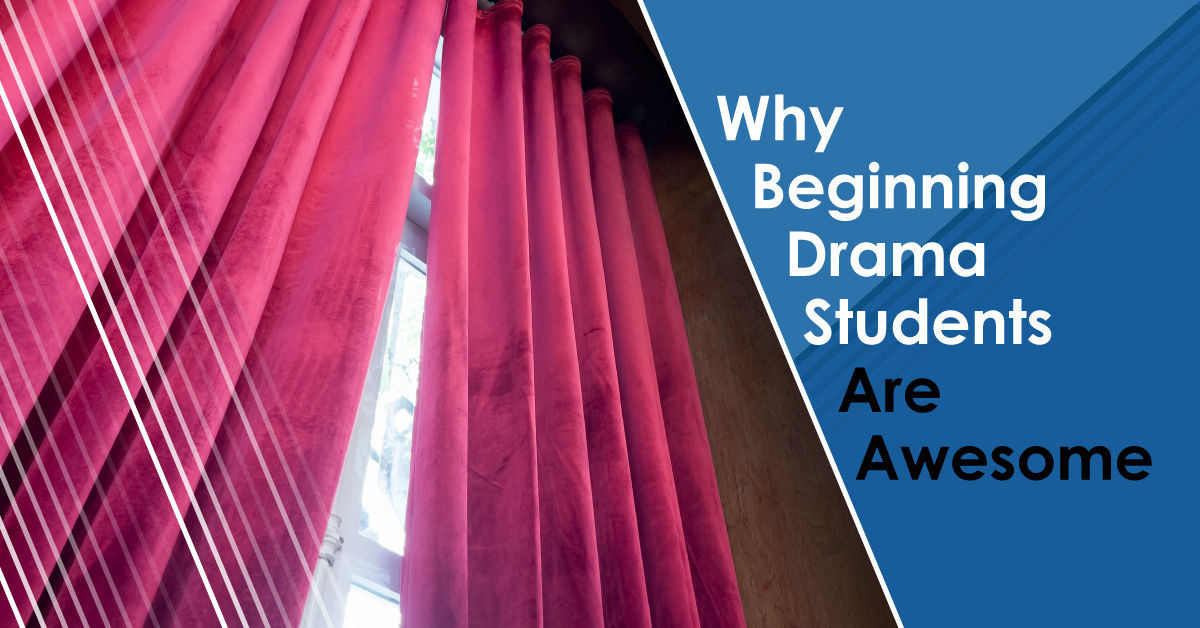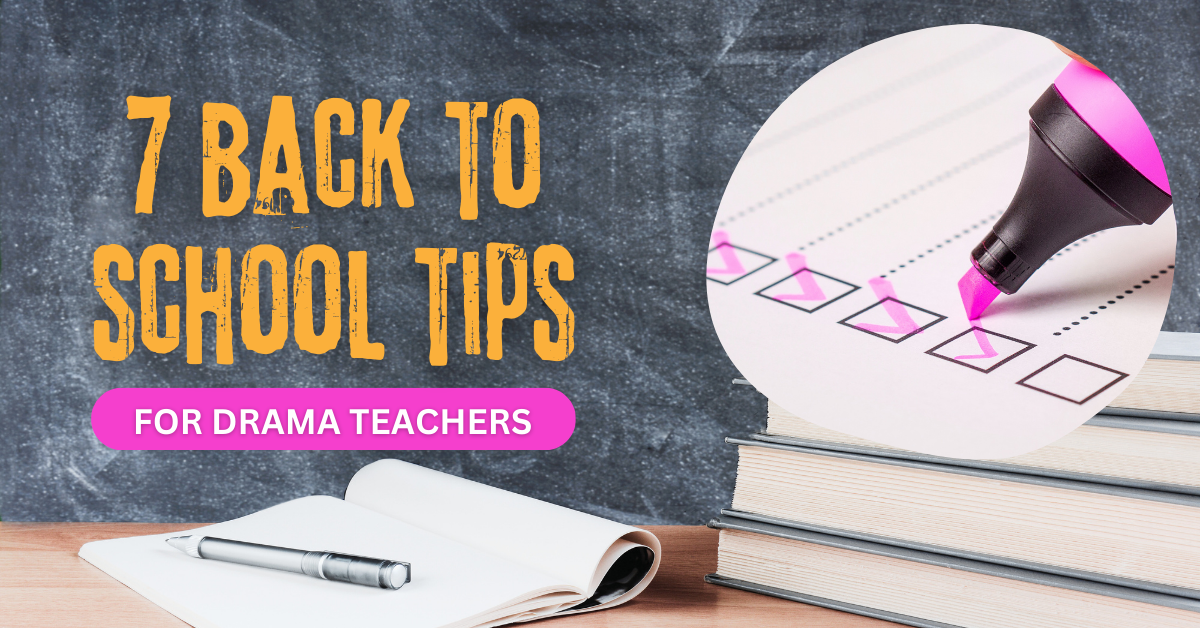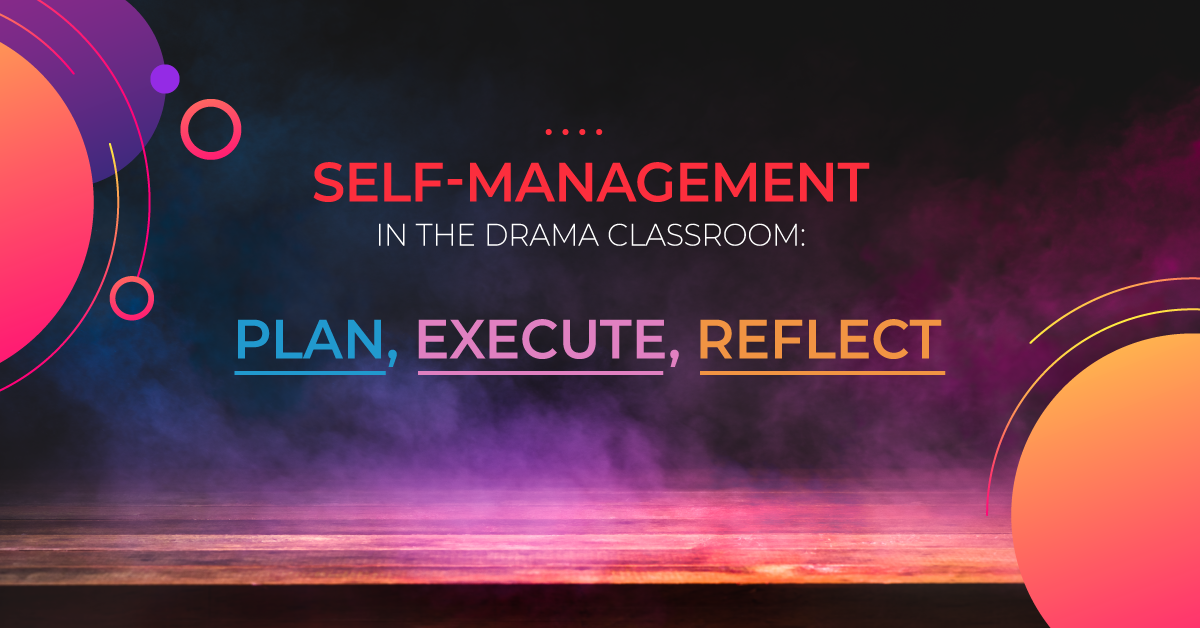Agatha Rex by Lindsay Price is a bold high school take on Antigone - packed with heart, conflict, and a powerhouse ensemble. One girl. One stand. One huge risk. *NEW COMPETITION VERSION AVAILABLE!*
Why Beginning Drama Students Are Awesome
Starting a new term with a new group of students can be concerning for even the most experienced drama teachers. Will you like them? Will they like you? Will they understand or connect with the material you’re presenting? Will there be behavioural issues or attendance concerns? It’s easy to become jaded, so let’s work on letting that go or avoiding it altogether. Let’s look at our new students with a sense of curiosity and excitement — because beginning drama students are awesome, and here are a few reasons why!
1. They start as a mystery — but a good one. At the start of a new school year or a new term, you don’t know who you’ll get in your class. Do your best to go into it with a positive outlook. It’s fun to get to know new students, observe new connections being made between students and with you, and experience new talents emerging. It’s nerve-wracking but exciting, and remember that your students are likely nervous too. So on those first few days you’ll all already have something in common: you can all be nervous together!
2. They’re blank slates. These students are ready to learn and open to new ideas. You get to impart new and exciting information to them, and teach them the techniques, skills, and etiquette that you want to see in your students. You can observe and help students develop admirable qualities and good backstage habits.
3. They’re often eager to please — particularly younger drama students in middle school. They want to be in your class and they want to do well. Praising students is often the most effective way to give notes, and new drama students thrive on it. Telling them what they’re doing well and what they can do more of will yield much better results than always telling them what they’re doing wrong. Yes, you do have to give constructive feedback, but as the saying goes, “you attract more bees with honey than with vinegar.”
4. New students come in with fresh perspectives. They have different experiences and ways of thinking. They provide insights you may not have considered before. You will likely learn as much from them as they do from you!
Beginning drama students may have different learning styles and will connect differently with the material you present than previous classes did. Something that you’ve taught in previous years may not resonate the same way with these students, or conversely, you may bring back something that didn’t work with previous students and find that it works really well for your current students! This is one of the reasons why it’s important not to get too locked in to doing the same curriculum and lessons over and over, the same way each time. On that note…
5. They keep you on your toes. It’s important not to get stuck into a rut. How do you keep your old lesson plans from getting stale, or worse, turning into “obviously you should know this.” What is simple and old hat to you is new, exciting, and potentially a little scary for beginning drama students. Look back over your curriculum and use your new students’ experiences and feedback (which might come to you as “I don’t get it” or “this sucks” unfortunately, but it’s feedback nonetheless) as opportunities to review and refresh your lessons.
For example, if your students are all selecting the same boring Google-searched monologues for your audition preparation assignment, you might want to start a monologue binder with a fresh variety of pieces for students to use. If students are struggling to come up with ideas for playwriting assignments or improv scenes, grab some different prompts for them to use. Review your lesson instructions and ensure that your requirements are clear. Could you present the lessons in a different way, adjust the wording, or offer different options for students to present their work? This has the added benefit of not only helping your students succeed, but getting you out of the lesson rut.
6. The wins are big wins. When everything is new and there is so much to learn, practice, and review, there is potential for students to feel unsure, overwhelmed, or frustrated. But the moments of success are everything.
It’s exciting to witness “lightbulb moments” — when students really “get” a new concept and apply it, or make a connection between something they’ve learned and something they already know. There are also the triumphs, like when students take a bow after knowing that they nailed a scene or exercise and hear their peers applaud their work. Those moments are so fun to experience, and should be celebrated!
But don’t overlook the so-called smaller wins. Seeing students really engaging in a lesson, having them ask to do a game or exercise again, and reading thoughtful exit slips and reflections are all wins. Overhearing a student say something at the end of class like, “I wasn’t sure about today’s lesson but it ended up being pretty ok” is definitely a win. All those moments add up. Keep looking for the wins and celebrating your students’ (and your) successes as much as possible.



